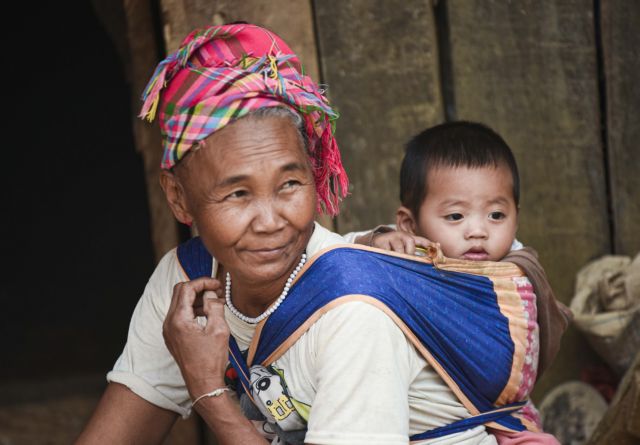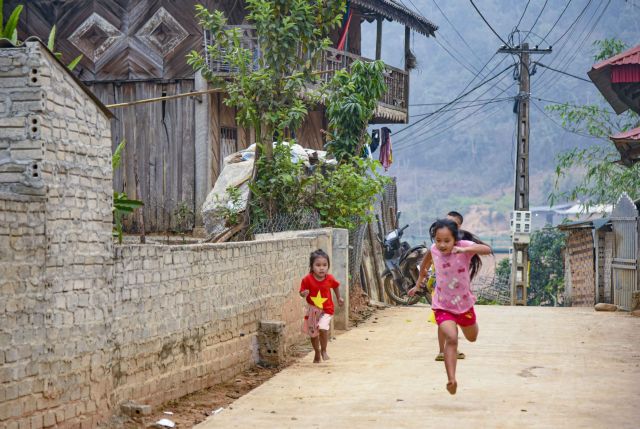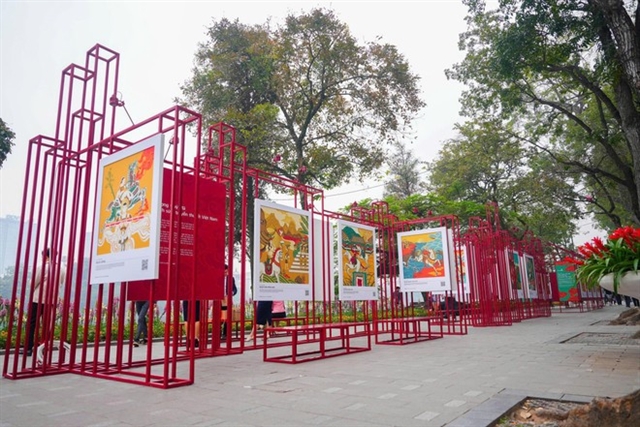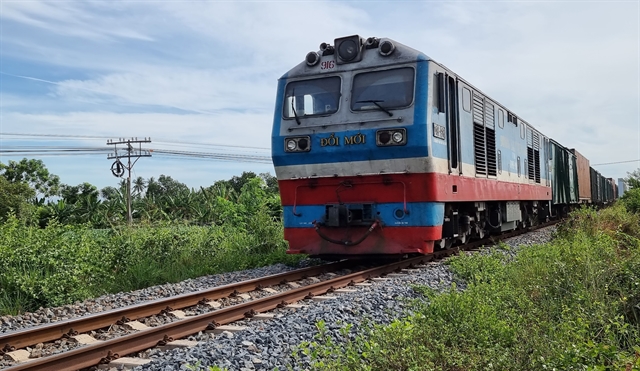 Society
Society


|
| Cống ethnic minority people in the northern mountainous province of Điện Biên.—VNA/VNS Photo Xuân Tư |
ĐIỆN BIÊN — The lives of the Cống ethnic minority group in the northern mountainous province of Điện Biên have undergone significant transformation thanks to supportive policies from the Party and the State.
Lò Văn Liên’s family is one of the exemplary households in Púng Bon village of Pa Thơm Commune, Điện Biên District.
In 2016, when the province launched a programme to develop the economy and society for ethnic minorities by providing seedlings and fertiliser to local residents, many households sold the items at low prices instead of planting the seedlings and applying the fertiliser as instructed.
However, Liên took a different path.
He explained that he decided to keep all the seedlings and used the fertiliser on his fields following the guidance of agricultural officers.
After some time, seeing his fields yield higher than others, the villagers realised that, although they had the same type of rice, using fertiliser in the right way had led to a much better harvest.
This encouraged other households in the village to adopt similar agricultural practices, significantly improving their results.
As former Chairman of the People's Council of the commune, Liên has always been concerned about how to improve the economic lives of the local people.
He is also a leading example in learning and applying farming and animal husbandry techniques, as well as in building proper animal pens.
Inspired by Liên’s family, many Cống households in the village have started to change their approach to farming and therefore increase their income.
In recent years, the district’s agricultural sector has actively organised training courses on animal husbandry and farming techniques, encouraging people to apply what they have learned to their daily lives.
As a result, all of the Cống families in the village have abandoned the practice of free-range animal farming and instead built solid animal pens.
Vegetable farming has also been done according to the correct techniques, leading to better yields and greater quality produce.
Quàng Văn Hiêng, a local resident of the village, shared that in the past, his family used to let livestock roam freely, but now all the households in the village keep them in pens.
With guidance from local officers on mixing feed for the animals, the livestock has thrived.
Consequently, animal husbandry in the village had proven to be economically effective.
A flourishing village

|
| Children play on a concrete road in Púng Bon Village, Pa Thơm Commune, in Điện Biên province.—VNA/VNS Photo Xuân Tư |
Today, the village is thriving, with sturdy houses.
Thanks to the National Target programmes for the development of ethnic minority and mountainous regions, the living standards of the Cống ethnic minority people in the province have significantly improved.
A series of infrastructure projects such as roads, community houses and clean water systems have been built, fulfilling essential needs for the residents.
The poverty rate among the Cống ethnic minority people in the district has drastically decreased, from 90 per cent in 2016 to 43 per cent in 2023.
Deputy Chairman of the People’s Committee of Điện Biên District, Nguyễn Tiến Cường said thanks to the supportive policies, the material, cultural and spiritual lives of the Cống ethnic minority people in the commune had seen noticeable progress.
Children in the village now receive a full education, and residents trust local health facilities for treatment, a stark contrast to outdated mindsets of the past.
No more child marriage
In recent years, child marriage or consanguineous marriage have been eliminated within the Cống community in the village.
This is the result of continuous efforts by local authorities and organisations, which have implemented programmes promoting reproductive health and family planning.
The women in the village have increasingly been exposed to information and participated in discussions, better understanding the severe consequences of child marriage and consanguinity marriage on future generations, the economy and health.
Lò Thị Ón is a prominent example of the campaign against child marriage in the village.
Having been a victim of child marriage herself, she married at the age of 13, facing both emotional and physical hardships.
Having experienced this pain, Ón was determined to change her mindset and prevent her children from following the same path.
She encouraged her children to study well, marry at an approporiate age, and freely choose their own partners.
Thanks to her perseverance, one of her children has become a local official.
Ón’s progressive mindset has become the driving force for over 80 Cống households in the village.
All of them are committed to ensuring their children are educated, do not marry while they themselves are still young and build prosperous and happy lives.
This is the core objective of the support programmes and economic-social development initiatives aimed at ethnic minorities.
Vì Thị Xôm, Chairwoman of the Women’s Union of the commune, said that the union had regularly organised awareness campaigns in each village to prevent child marriage and consanguineous marriage.— VNS




